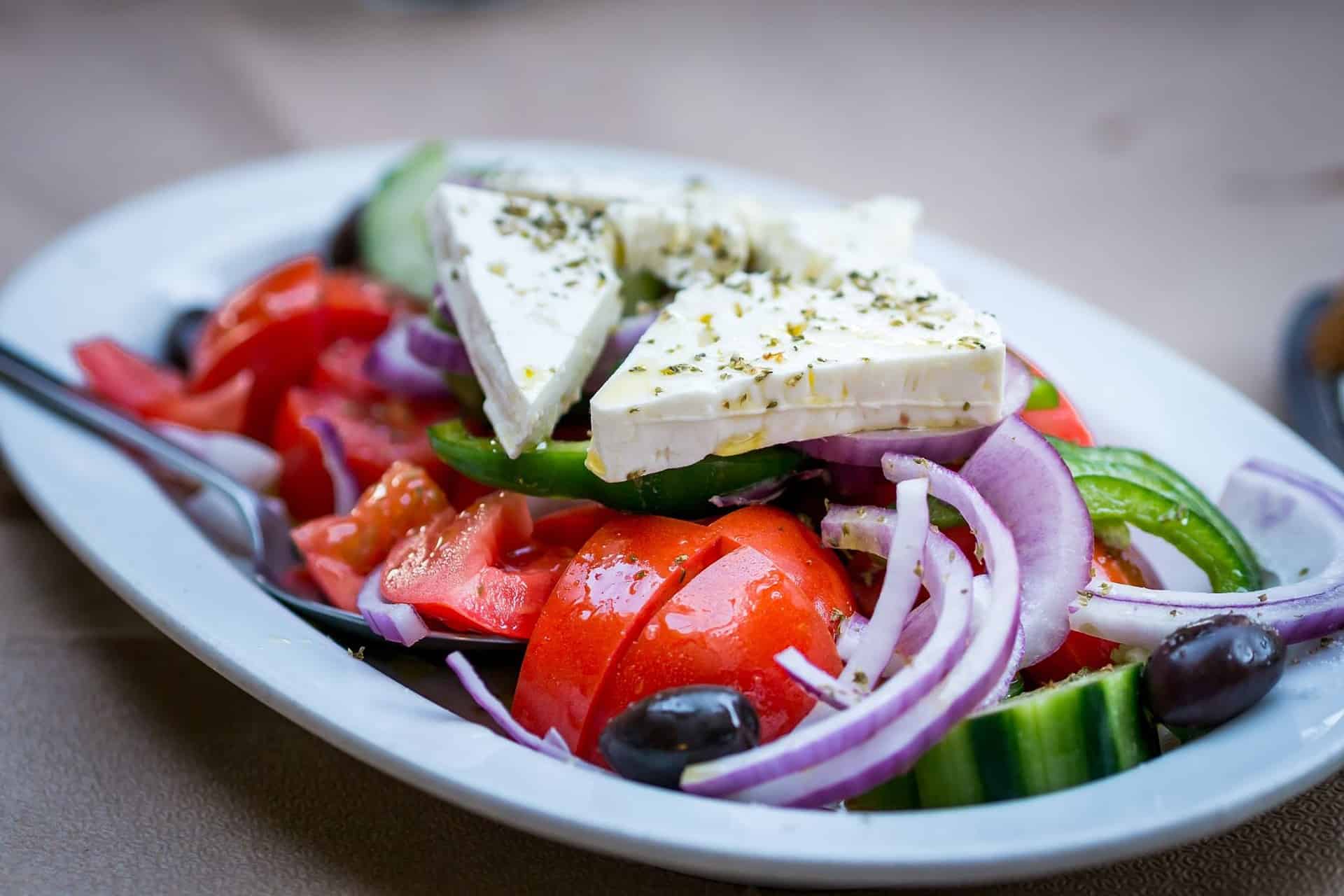Improvising is like a Greek salad
Improvisation is something that can bring you great levels of musical fulfilment when you master it. The ability to express yourself on the fly with your instrument and convert any thought of emotion going through your mind into music is something that many musicians aspire to. Yet this require going through a process of learning that many get frustrated with, or don’t even get started with because they believe they don’t have the ability to learn how to improvise.
The truth is that anyone can learn how to improvise if one learns it through a coherent process. There are many concepts that can help you with your improvising, but today I’d like to focus on one: the similarities between improvising and a Greek salad.
Chapter 1: Panic on board
It’s 11.30am on a Sunday and your partner’s parents are coming for lunch in just about an hour. Your partner took care of the main course and your in-laws are bringing desert. But here’s the catch: you’re in charge of the entrance and you’ve never cooked in your life before. It’s the first time your meeting the genitors of your other half and you’re shaking like a mouse in front of a psychopathic cat.
In front of you lie the instruments of your own torture: lettuce, blue cheese, onions, black pepper, bacon, parsley, chicken, cucumber, tuna, baby spinach, eggs, cheddar, salt, feta, minced meet, olive oil, vinegar, mayonnaise, tomatoes, pickles, olives, beetroot and peppers. You’re looking at the ingredients and they’re looking back at you with a massive, condescending smirk of “you have no idea what to do with us, do you”.
You could just throw them all in a salad bowl and pray to the God of Salads that it will all turn into a Sunday delight. Or you could just look up a recipe and follow it, except you can’t, because your Internet is down, you have no cooking books at home and don’t have time to leave the house. So you have to improvise.
You’re paralyzed. There are just so many variables here. So many possible combinations of so many things in so many ways. What is going to taste good? What is going to taste OK? What is going to taste bad? How can you know, since you’ve never cooked before?

Chapter 2: The revelation
As you’re getting so anguished that your armpits start looking like a map of Michighan lake, the God of Salads suddenly descends from the heavens, straight into your Ikea kitchen, and says, with a solemn, salad-godly tone: “If thou will to succeed and win over the folks of your beloved one, thou shall only pick 5 ingredients”.
Thank you God of Salads! That all makes so much sense and reliefs your anguish very much. You take a small bowl and pick samples of ingredients that seem like they will go well together: lettuce, olives, cheddar, tomatoes and pickles. You taste it: pretty disgusting. You take another bowl and try again with peppers instead of pickles. It’s already better. But the cheddar is just weird: maybe you can replace it by something else? In a third bowl, you try the same recipe again, only you put feta instead of cheddar. Way better! But the texture of the lettuce just doesn’t fit the whole dish. You feel like things could be better if you replaced it with another green veggie. Let’s try cucumber. Yep, that’s much better. At that point you’ve got tomatoes, pepper, cucumber, feta and olives. But something’s missing. Something to give the whole thing more taste.
You add in some olive oil. Better, but we need more. You throw in some vinegar. We’re getting there. At that point it’s getting much easier to add things to your salad because you already have a structure: you’re just filling the gaps and making small adjustments. You reach for your salt shaker, and go in for the kill with a glorious pinch to complete your masterpiece.
Chapter 3: You’re family now, son
“Oh, you made us a Greek salad!”, say your in-laws as you proudly bring your piece of art to the dining room table. “Oh, did I”, you think to yourself. “But it’s like… Different from the ones I’ve eaten before. It’s like it has its own personality”, says your partner’s father and he joyfully brings another forkful of it to his mouth. Food being one of the most important things in his life, you’ve just secured yourself a place in his heart forever. Mission accomplished. Next time you’ll try something even more original, that doesn’t even remotely taste or look like an existing salad.

Chapter 4: What on Earth does this have to do with improvising?
Glad you asked. Well, the main reason why guitar students feel overwhelmed when trying to improvise is because they try to navigate between too many ingredients at a time. They throw in an idea, then another one, and another one, and so on and so forth. Sometimes they get a pretty good idea, but they don’t stop to try to improve on that idea or make variations out of it. They run to the next idea and to the next, as if they were just adding more and more ingredients to the salad regardless of which ones are appropriate and which ones are not.
A much more efficient way to practice improvising would be to make up 4 or 5 musical ideas, take the time to practice them so that you can plan them properly, and then make little variations of each idea, change the order in which you play these ideas, build transitions between each idea, try them over another backing track etc. You’ll feel like you have a “base” that you can tweak until it sounds good, and you’ll be much more satisfied with the result.
Eventually you’ll have built a “library of ideas” and when improvising, you’ll instinctively know which one will fit at which moment and in which context, and you’ll be able to make things up on the spot. But this comes with practice: all these musicians that you admire and seem to just “have ideas fall from the sky as they play” have gone through a similar process in one form or another. Many like to look like they never practiced it (because of the mystique it conveys) but I can tell you that in reality, every single musician has gone through many hours of trial and error to figure out what works and what doesn’t.
So keep practicing this way until you too can “have ideas fall from the sky” when you improvise!
About the author
Matthieu Delage is the director of the Escuela de Guitarra de Madrid, which is considered as providing some of the best guitar lessons in Madrid. It uses a proven method which has produced significant results for many guitar students.
Matthieu es el director de la Escuela de Guitarra de Madrid, donde se imparten unas de las mejores clases de guitarra en Madrid. Usa un método probado, que ha producido importantes resultados para muchos alumnos.




